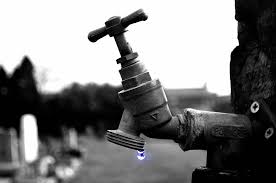THE DEPARTMENT OF HEALTH ADVOCATES SAFE WATER COLLECTION PRACTICES DURING THE SHORTAGE.
 The Department of Health and Wellness advises the public to be vigilant and maintain safe water drinking and collection practices during the period of water shortage.
The Department of Health and Wellness advises the public to be vigilant and maintain safe water drinking and collection practices during the period of water shortage.
Contaminated water, poor sanitation and improper water storage can expose individuals to infections and result in the transmission of a range of illnesses. Illnesses such as acute gastroenteritis, an inflammation of the stomach and the intestines, may be spread by direct contact with an infected person, by consuming contaminated food or water or by touching contaminated surfaces then putting unwashed hands in your mouth.
Some insects that live or breed in water can also carry and transmit diseases such as dengue fever, chikungunya and Zika virus. These insects, known as vectors, breed in clean water, and household drinking water containers can serve as breeding grounds.
In order to keep your family safe, the Department of Health and Wellness recommends the following:
- Ensure that containers are cleaned and sanitized before storing water. This can be done by rinsing them out with a simple bleach solution of 1 teaspoon of household liquid bleach to 1 liter of water.
- Water storage containers should be properly covered in order to reduce vector breeding.
- If you are unsure about the water source, water should be boiled (to a full rolling boil for 1 minute) then allow to cool before use. Alternatively, water purification tablets can be employed (1 tablet to 1 liter of water) or 1 capful of chlorine bleach to 1 gallon of water and let it stand for approximately 5-10 minutes.
- Breastfeeding is the best infant feeding option, however, if you formula feed your child, ensure that water is properly prepared before mixing formula.
- Ensure that food is prepared with clean hands. Hands should be washed with soap and clean water for at least 20 seconds. If soap and water are not available, use an alcohol-based hand sanitizer that contains at least 60% alcohol.
- Surfaces and objects should be disinfected frequently to eliminate germs (using bleach; 1tsp bleach to 2 cups of water) and allow to air dry before using the surface.
- Avoid eating out as much as possible as restaurants may also be experiencing water shortages and food preparation may not be optimal.
-
The Department of Health and Wellness continues to monitor the situation and remains vigilant of disease trends.
For more information, please contact the Bureau of Health Education at 468-5349